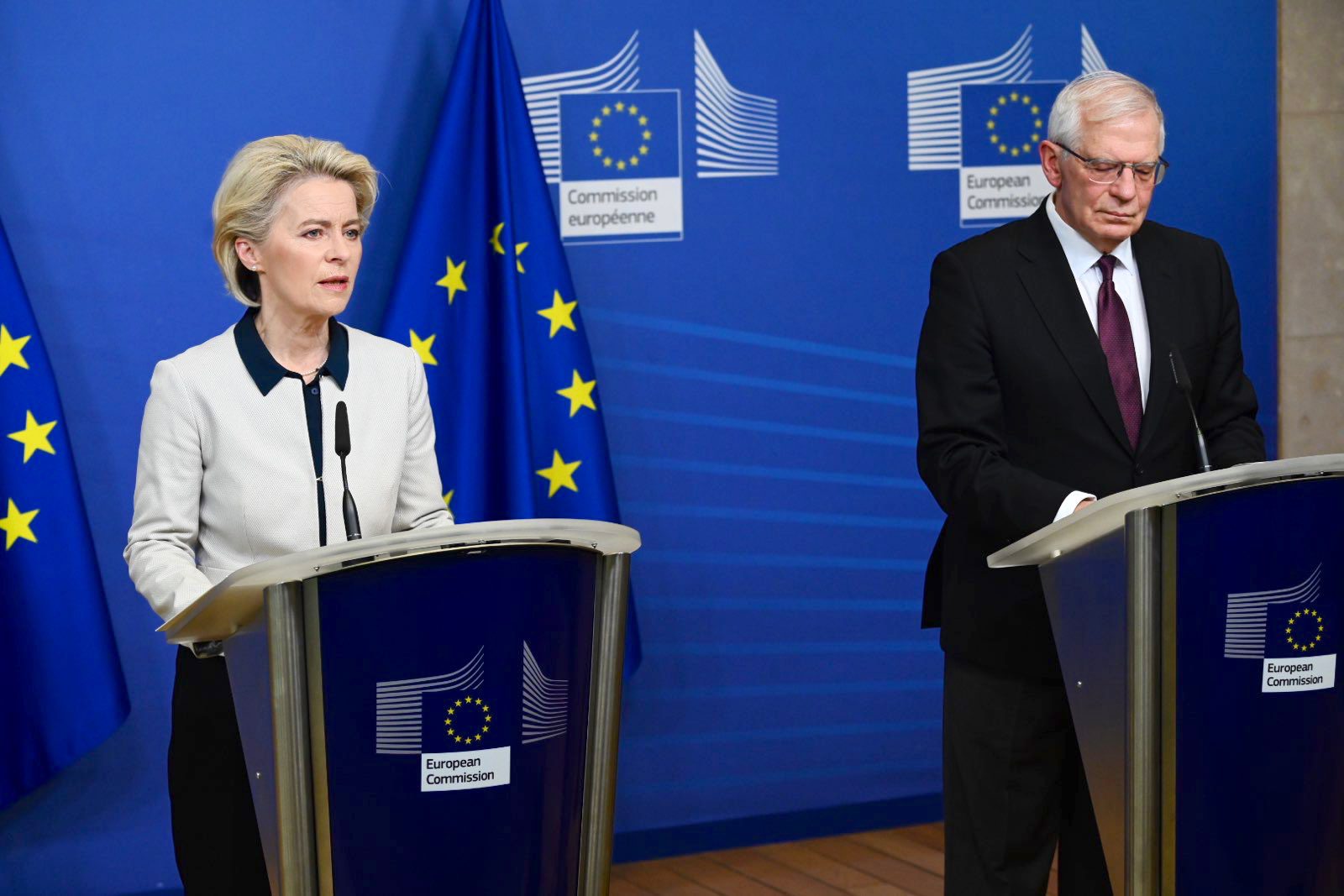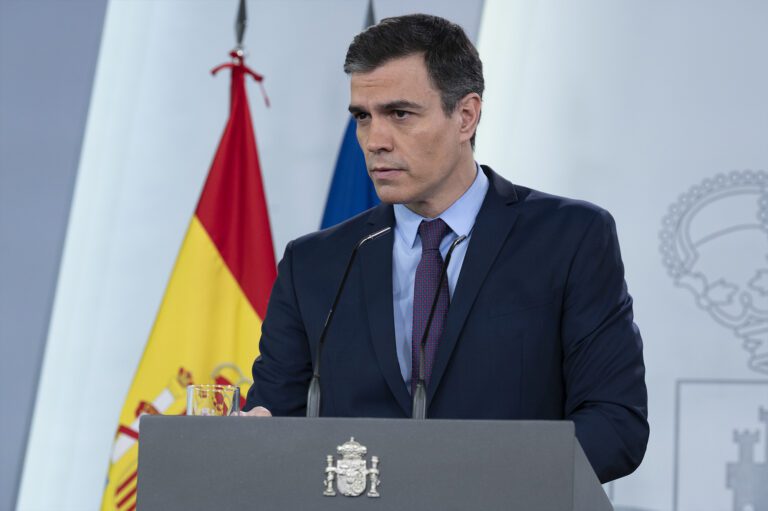The European Commission has announced a sixth sanctions package against Russia, the toughest so far.
The proposed measures, presented to the EU Parliament by Commission president Ursula Von der Leyen, would touch Russian oil imports, Russia’s top bank, and Russian broadcasters.
EU countries have been given six months to disentangle from Russian crude oil imports, and twelve months for Russian refined oil imports, Von der Leyen said.
Additionally, the sanctions would prohibit Russian broadcasters from accessing European airwaves and block Sberbank from Swift transactions with Europe. The sanctions would not, though, touch Europe’s most sensitive energy dependency, natural gas.
Sanctions also target high-ranking Russians responsible for the massacres of civilians in Bucha and for the siege of Mariupol that killed thousands of civilians and left thousands in others stranded in brutal conditions.
Politico was able to access a European External Action Service document, through which it also reported that the sanctions package included injunctions against the head of the Russian Orthodox Church, Patriarch Kirill. The document cited him as “one of the most prominent supporters of the Russian military aggression against Ukraine” and an instrumental piece in amplifying Russian President Vladimir Putin’s rhetoric on Ukraine, according to Politico. For evidence, it pointed to a series of pro-war sermons and remarks by Kirill in the months since Russia’s lethal invasion began in February, as well as his blessing for Russian soldiers fighting in Ukraine.
The most controversial aspect of the sanctions at the moment though is the embargo on oil. The European Union imports 27% of its oil from Russia, which is approximately half of the portion of natural gas supplies it gets from Gazprom, but also still a large enough portion of Europe’s oil stores to potentially hurt Europeans and the European economy. Most of the oil is used for transportation fuel.
“Let’s be clear, it will not be easy because some member states are strongly dependent on Russian oil, but we simply have to do it,” Von der Leyen said of the proposal.
Some Central European countries expressed concern that the sanctions will come too soon for them to adapt, even though diplomats said Hungary and Slovakia would be given until the end of 2023.
Reuters reported that Hungarian Foreign Minister Peter Szijjarto said on Facebook that even with the extension, Hungary could only agree to the measure if the sanctions excluded crude oil imports via pipeline. Slovakia has publicly asked for a three-year transition period, according to the news outlet.
Hungary also warned that the sanctions package lacked proper preparation and foresight for European energy security.
“We don’t see any plan or guarantee on how even a transition could be managed on the basis of the current proposals, and what would guarantee Hungary’s energy security,” the Hungarian government’s press office told Agence France-Presse (AFP).
Experts warn that cutting off Russian oil imports will increase the price of gasoline for European consumers. They also caution that delayed onset of the sanctions will only give Russia time to sell its oil elsewhere before losing European business, weakening the effects of the sanctions.
The sanctions will have to be approved by the governments of the EU countries. Envoys are expected to meet over the next few days.





